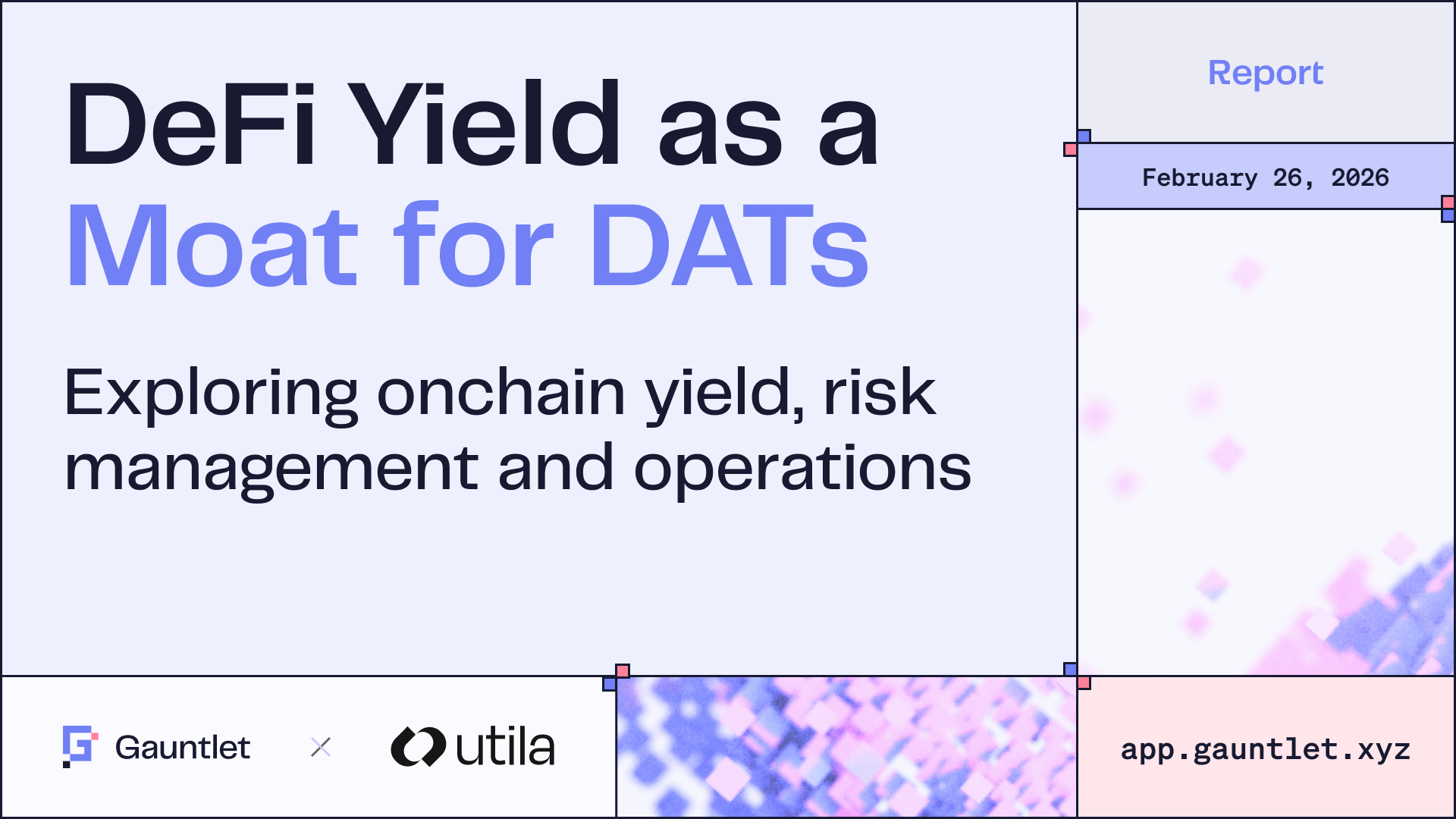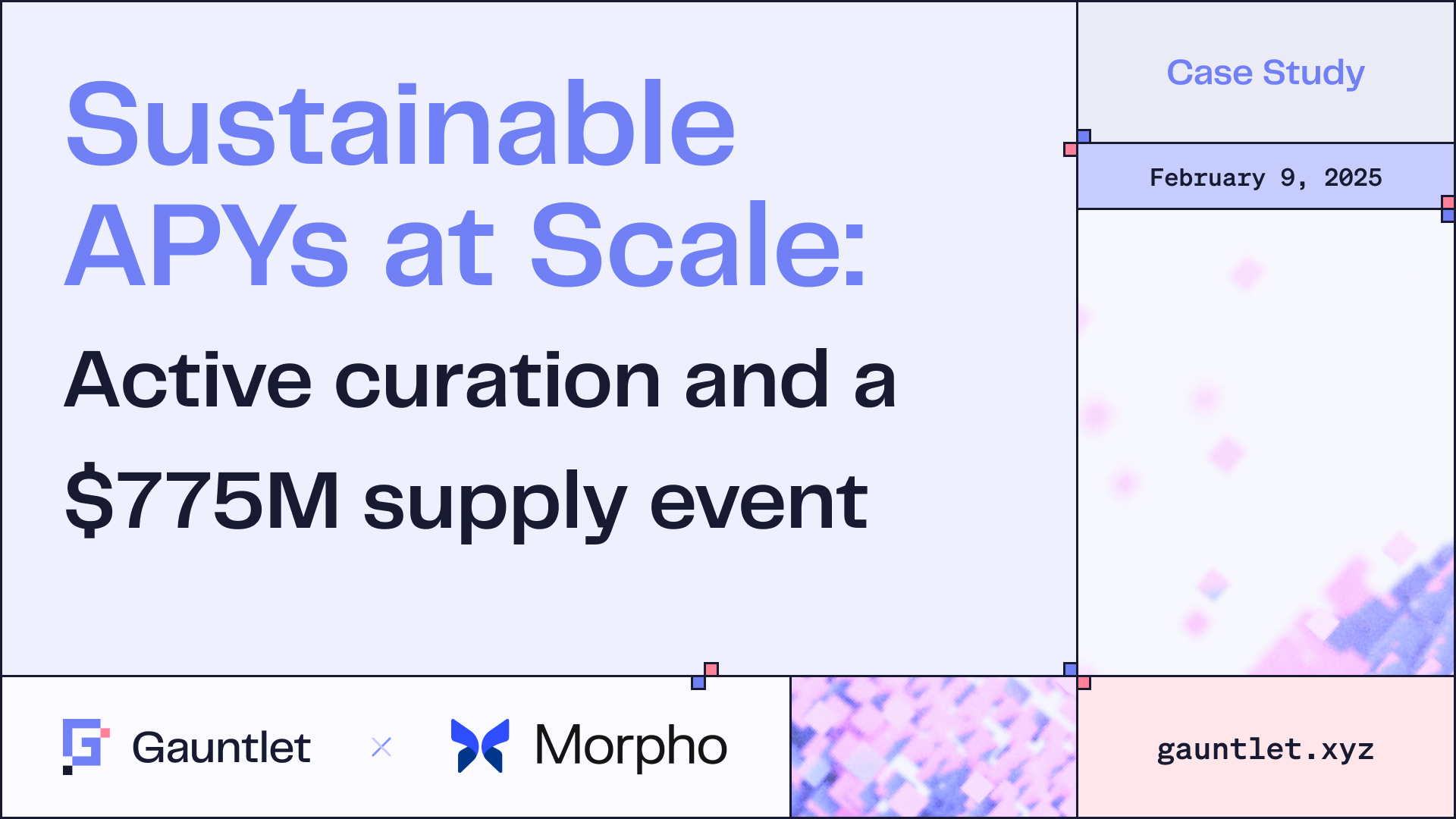%20v1%20(1).jpg)
On a Tuesday afternoon earlier this year, Tiffany and I sat down to discuss her journey through mathematics, accounting, and crypto. From her early background in pharmacy, we find out what drove Tiffany’s interest in math and later traditional and crypto accounting at Gauntlet. In this spotlight, you’ll get a view into the unique challenges that Gauntlet faces as a startup in the DeFi space and the team members who make our work possible.
Noah Sanford: Coolio well, thanks so much for coming on.
Tiffany Liu: No problem, my pleasure.
Noah Sanford: Well, so I really want to focus on your background at the top of the call because you have such a cool story. Tell me a little bit about what led you to where you are now. So you studied math, and then, you did more math things in a more formal business way at USC, and then you have somehow pivoted away from math into CPA… give me the rundown. Tell me how you got initially interested in math, what led you to study it in college, and how it brought you to the beginning of your career?
Tiffany Liu: Oh gosh, love it, okay. When I got started in college I was doing pharmacological chemistry, and then it turns out I hated physics. And so, on physics alone, I switched to mathematics. Just off the top, I have to say I had a great time – I really enjoyed majoring in mathematics. During all of this, I was still pre-pharm. I eventually became president of the Pre-Pharmacy Society and was very focused on going into that field. I graduated in 2014 with my math degree and because I loved it so much and did well, I wanted to explore something outside of medicine and pharmacy, which had always just been the default. But upon graduating from college, it was kind of hard to figure out what to do – whether I wanted to go into a Ph.D. program, continue with academia in mathematics, or become an actuary for example… but as fate would have it, I fell into an accounting job.
Noah Sanford: How did that happen?
Tiffany Liu: So it was actually through a high school friend whose mom is a CPA, lawyer, and a realtor. She was truly an OG girl boss. She has a firm out here in LA that does all three – tax & accounting, legal consulting, and property management. The trifecta of these really work well hand in hand. I saw it all in action and loved it. Some people might think accounting is boring but I personally enjoy it. I like to say that it is similar to the mathematics universe.
Noah Sanford: How so?
Tiffany Liu: Well, for accounting but more so taxes specifically, it's very complex and there's a set of rules. It has its own universe in a way – its own dynamic world where a specific set of rules are applied. And ultimately, there's always a right way or reasoning to do something, just like how there’s always a proof in mathematics.
Noah Sanford: Yeah.
Tiffany Liu: Yeah so I’ve always liked this comparison. And in a way, I think that’s how my math background has helped me with accounting. So I worked there for a year and it eventually led me to apply to USC’s Master in Business Taxation program. This ended up being where all of my accounting foundation got instilled in me – since I didn't major in accounting for undergrad as most CPAs do. Right after my master’s program, I went into public accounting at Ernst & Young. And from there I basically always straddled this world of real estate and high net-worth individuals taxes for the next two or two-and-a-half years. I switched firms here and there, but always stayed in the realm of real estate tax, and I thought I didn't want to learn anything else. I was in this place in life where I wanted to just settle down and build on my established experience. But then came crypto. This was around the summer of 2021, aka DeFi Summer haha, it was peak crypto time. I'm from LA, so there were many people on the creative side and before long, people kept asking me about crypto accounting, crypto tax and such, so I started looking into it. Talking to friends, joining different networks, finding opportunities in accounting – this all eventually led me to finding Gauntlet.
Noah Sanford: Wow this gives me a lot of offshoots to chase down. You created the parallel, starting with math and universal rules. What about the crypto space? How do you bring that previous experience with the rules and the methods and then apply that to this very specific unique situation?
Tiffany Liu: Yes, so I started at Gauntlet knowing that I would be deeply immersed in tokens and crypto accounting. I wasn't sure how difficult that would be at first. Now I can more confidently say that, yes, it is difficult, but also a lot of crypto accounting still follows existing frameworks. It challenges my knowledge of those accounting frameworks because I got a master’s in taxation, not in accounting, and so that's been really interesting for me to test my core accounting foundations like multi-currency accounting, for example. For much of crypto, there are commonly followed approaches and they're all modeled after existing traditional frameworks like accounting for multi-currency and intangibles. These are classic accounting foundations. So while it is challenging overall, it's also been really cool for me to get stronger in all these areas.
And, you know, I really like that with crypto accounting, you get to start from scratch. It’s not like cleaning up something that we’ve been doing for 20 years. Here we're really building new processes and procedures, thinking through new approaches, all based on traditional frameworks but making sure it applies to us and continues to represent our positions in a strong, reasonable way. So that's been kind of fun.
Noah Sanford: So what is crypto accounting? How would you explain it to someone?
Tiffany Liu: Hm, right off the bat, I would have to draw parallels with traditional accounting. So with regular accounting, you’re taking all of your transactions from bank statements, credit cards, etc. and you're recording and organizing that into financial statements through an accounting ERP like Xero or QuickBooks. So for token accounting, we're similarly doing all of that, but for wallets and on-chain activity rather than credit card or bank transactions. It can be as simple or as complicated as the activities are – so it really depends on the entity.
For example, at Gauntlet we might have different wallets for different purposes across various blockchains. And so, there's different ways of setting that up, but ultimately, just like a bank account or credit card, every transaction that's coming in and out will need to be booked into your accounting system. So that's a big part of what I do in tandem with my traditional accounting projects. Earlier I mentioned multi-currency accounting because that's the additional layer in crypto accounting – with the US dollar, that value never changes. But with tokens, it's going up and down every day on varying levels. You might receive a token at a certain value, but later on when you spend it or sell it, it most likely would have changed in value. And so in that way, it's similar to multi-currency accounting. Or at least, that’s the most similar framework we can use at this point to draw guidance from. In short, that's how I would explain it.
Noah Sanford: Well, thanks Tiffany, I really appreciate it.
Tiffany Liu: Thank you for including me.
Noah Sanford: Of course.
Tiffany Liu: Thank you. Bye.
Noah Sanford: Bye.
Blog
View the full presentation
Read the full paper








